Australia pulls out of China’s global trade expo
For the first time in three years, there will not be an official delegation from Australia at China’s Import Expo.
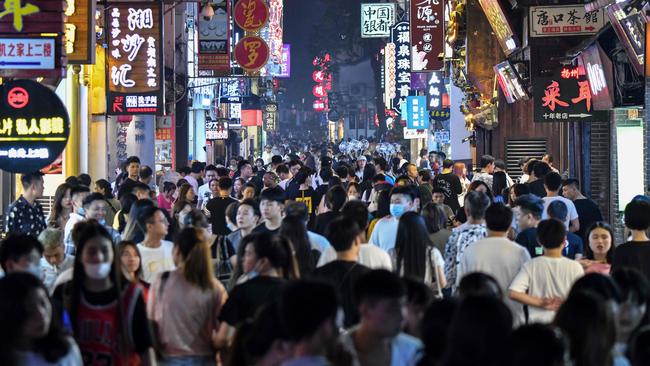
For the first time in three years, there will not be an official delegation from Australia at China’s Import Expo, a showcase event championed by Chinese President Xi Jinping, in Shanghai in November.
Federal Trade Minister Simon Birmingham on Friday confirmed that he would not be leading an official delegation to China, as he has done for the past two years.
Australian business executives involved with Australia’s once booming trade with China, which hit a record of more than $200bn last year, had been hoping that Senator Birmingham would be able to break the cycle of worsening political relations between the two countries with a visit to Shanghai in November.
The event has attracted leaders and senior executives of Australian exporters, including Fortescue Metals, Blackmores and Treasury Wine Estates.
While the political ties have been worsening, the hope — until recently — was that trade ties could continue despite several key sectors such as beef, barley, wine, education and tourism taking a battering through a combination of COVID-19 travel restrictions and Chinese trade moves.
But the Senator’s office confirmed those fears on Friday with a statement saying there would be no official delegation from Australia travelling to the expo because of “current international travel restrictions”.
The statement did not make it clear whether the “travel restrictions” meant issues around COVID-19 or the federal government’s official warning that Australians should reconsider any travel to China because of the risk of arbitrary detention.
Fears of arbitrary detention of Australians in China were heightened this week with the news that two journalists had received midnight visits from Security Police in China and had to shelter in diplomatic compounds before making a hasty departure back to Australia on Monday night.
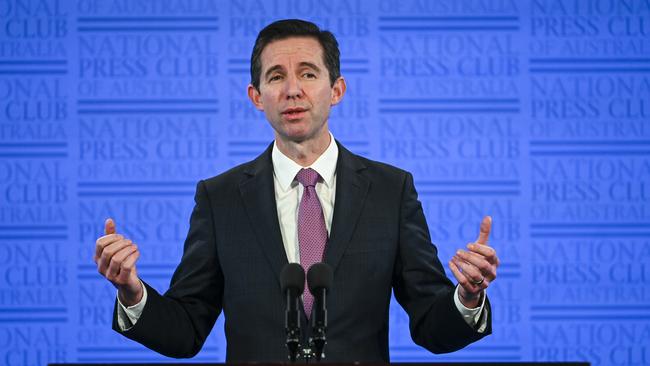
Senator Birmingham’s office said there would still be an Australian presence at the Shanghai expo, which would be supported by Austrade representatives in China who could involve Australian companies already on the ground in China.
He hinted that Australian business leaders who might still want to attend the expo, which has become a major gathering point for exporters from around the world wanting to sell into the China market, could “apply for exemptions for business travel through the usual process”.
Just which business leaders opt to apply to attend in the face of the government travel warnings could be interesting to watch.
Senator Birmingham, who is touted to move to the role of finance minister with the departure of Mathias Cormann at the end of the year, has been putting on a brave face about the future economic ties with China in the face of worsening political relations.
“It’s important to reinforce that Australia welcomes China’s economic prosperity,” he told ABC Radio on Friday.
“We want to continue to engage with China in a way which is mutually beneficial to both nations and is mutually respectful.”
The Senator deflected questions about whether the actions against the two Australian journalists was in retaliation for ASIO’s questioning of Chinese journalists a month ago.
“There are evident and concerning tensions in aspects of the relationship at present, including in relations to disruptions to trade,” he said.
“These are obviously matters we would wish to be handled sensitively and to ensure we can co-operate and work together in areas of mutual benefit in a mutually respectful way.”
His announcement came as Australia China Business Council national president David Olsson told The Weekend Australian he was hoping that Senator Birmingham would be able to lead a business delegation to China “as soon as travel restrictions were lifted”.
“Not only would it be hugely symbolic politically, but we know from past experiences that it brings an immediate update in orders,” Mr Olsson said.
“We need to reignite interest in Australian product once again in China, something that has been diminished in recent times.”
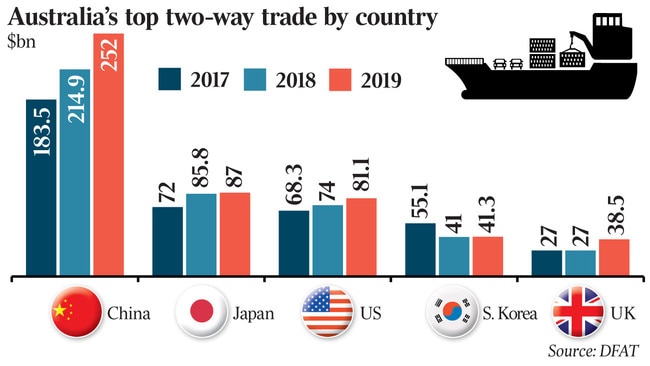
Like many others in the once booming Australia-China trade, Mr Olsson, who is now the international director of law firm King & Wood Mallesons, has been hoping to continue the economic relationship as best as possible, despite the worsening political ties.
“We should focus on those areas where there is no disagreement,” he said.
“Both nations agree that our economic relationship is mutually beneficial. It’s the obvious starting point for re-engagement.”
But for those involved in Australia-China trade there is now a wariness of speaking out in favour of trade with China and a weariness dealing with the fallout from a political relationship that has becoming increasingly bitter.
The year has seen the imposition of tariffs of 80 per cent on Australia’s barley exports, a business once worth $1.3bn a year, the launching of an anti-dumping inquiry into Australia’s $1.1bn wine exports to China and blocking moves against five abattoirs in Australia handling some 30 per cent of meat exports to China.
Australian Meat Industry Council chief executive Patrick Hutchinson told The Weekend Australian on Friday that he estimated the record $2.8bn in Australian meat exports to China this year would be down by more than a third this year following the moves against four abattoirs in May.
“Our industry is clearly under strain,” Mr Hutchinson said, citing the combination of drought, bushfires, COVID-19 issues and the disruption of trade with the meat industry’s largest export earner in China.
Tony Battaglene, chief executive of wine industry body Australian Grape and Wine, told The Weekend Australian “everyone is worried”.
“Clearly the political relationship is very poor,” Mr Battaglene said. “Things are very unhelpful where they are now. We need to get the Prime Minister to talk to his counterpart in China and Simon Birmingham to talk to his counterpart in China.
“But while all this noise is going on, it makes it harder. We can resolve trade issues but we can’t get people in the same room or people to take phone calls.”
“Until they can have a conversation, it is very difficult to get a resolution (of trade issues).”
Mr Battaglene said his organisation and wine companies were working through the paperwork to put their case to Chinese commerce department officials, arguing that Australian wine was not being dumped in China.
Some business leaders are privately critical of some the ways that the Morrison government has handled its relations with China, with some believing Canberra has been too outspoken on issues critical of China. But they have also been wary about the potential implications of the aggressive nationalism in China.
Many senior corporate leaders who have been willing to discuss their China market in public, such as Fortescue founder and chairman Andrew Forrest, now prefer to stay out of the limelight in the increasingly politicised China debate in Australia.
“The sands are changing,” Mr Olsson said.
“We understand that there are cycles in bilateral relationships — just as there are in business — but now there is a realisation that the trough we are entering will be deeper and longer than any of us had anticipated.
“Some sectors are more affected by recent events than others, but the mood is broadly one of concern, tempered by pragmatism.”
NSW angus beef farmer Robert Mackenzie is determined to keep up his business with his customers in China despite political tensions and the temporary suspension of meat exports from the abattoir he was using to send his product to China. A fourth-generation beef farmer, Mr Mackenzie’s business was hit in May when the abattoir he used in northern NSW to process his beef bound for China was hit with a temporary export ban by Chinese customs authorities, one of four facilities in Australia to be temporary suspended.
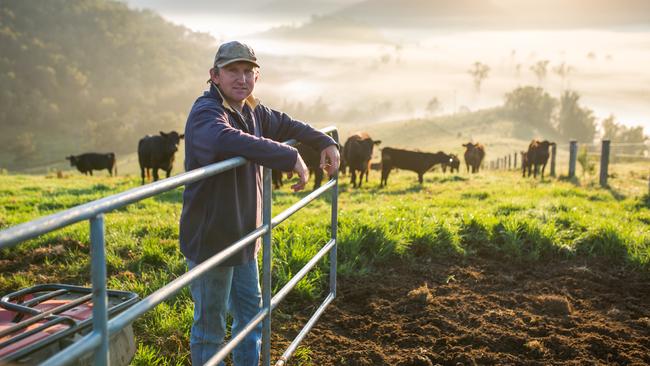
But he has since managed to repair his business by rerouting most of his Chinese orders to another abattoir in Queensland and diversifying his exports through the facility in northern NSW to 12 other countries, mostly in the Middle East and Asia.
“We are currently moving product into China regularly and consistently,” Mr Mackenzie said from his farm in Gloucester, north of Newcastle.
“Our customers in China are quite relieved that we are still committed to the relationships we have forged over many years.”
Mr Mackenzie, who travelled to China 14 times in the past five years and will do so again as soon as travel restrictions are lifted, had focused his export business entirely in China until this year.
He said both he and his customers in China had a strong relationship, which they both wanted to continue.
“There is a level of respect on both sides,” he said of his ties with Chinese beef buyers in cities such as Shanghai.
But he said both sides were “all up in the air about what is going on” in terms of the worsening political situation.
“We are scratching our heads and thinking ‘what the f..k’?” he said.
Mr Mackenzie said he and his customers in China were still the best of friends, but they would dearly like it if their political masters in Beijing and Canberra could sort out their difficulties.
He said politicians on both sides should be aware of the collateral damage they were doing to businesses in both countries, which just want to keep trading with each other.
“It’s like when mum and dad are arguing, the people that are suffering are the kids,” he said.
“At the moment it is the kids who are suffering — we are suffering,” he said of him and his customers.
“We want to resolve this for the benefit of our two countries.”


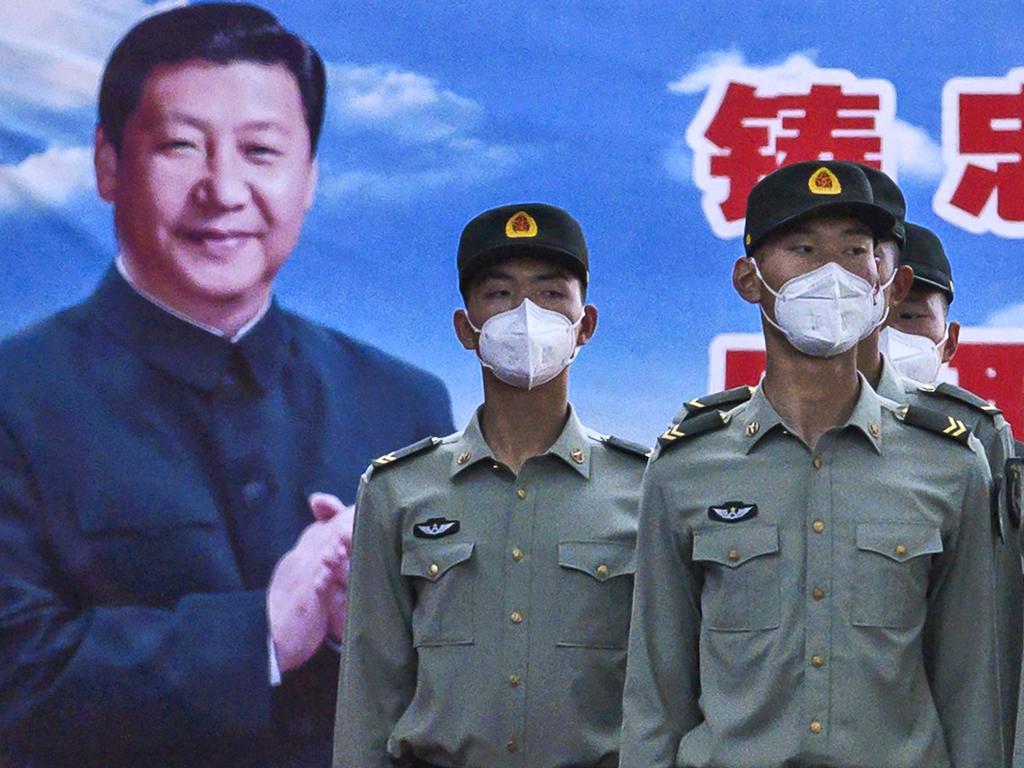
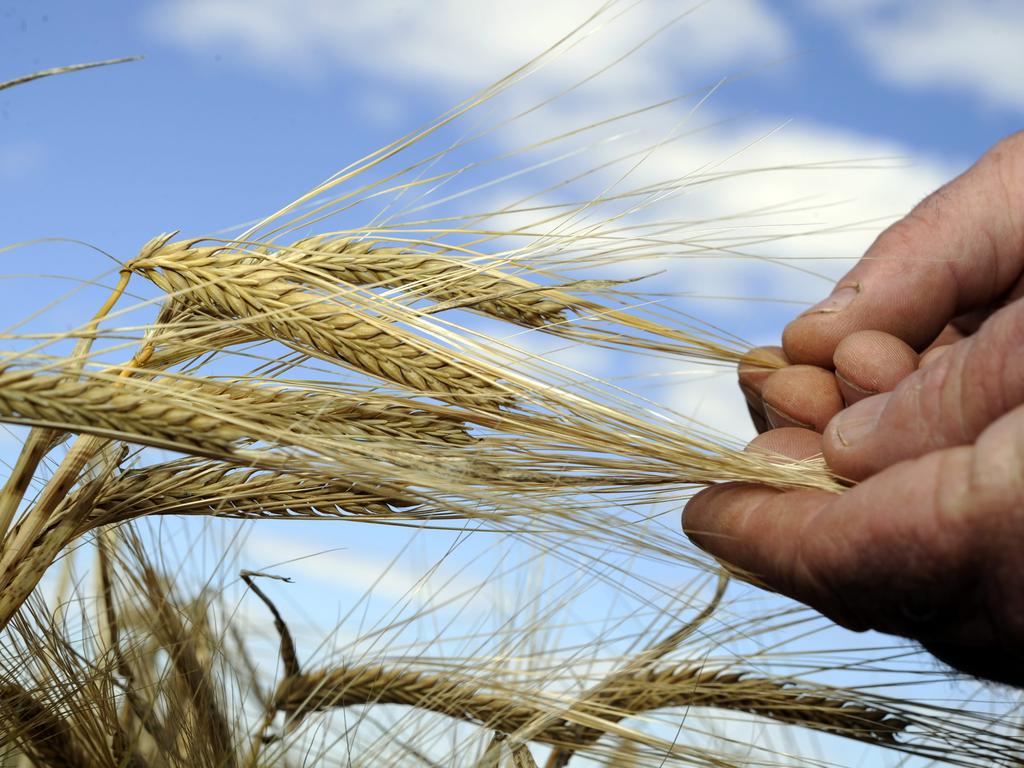
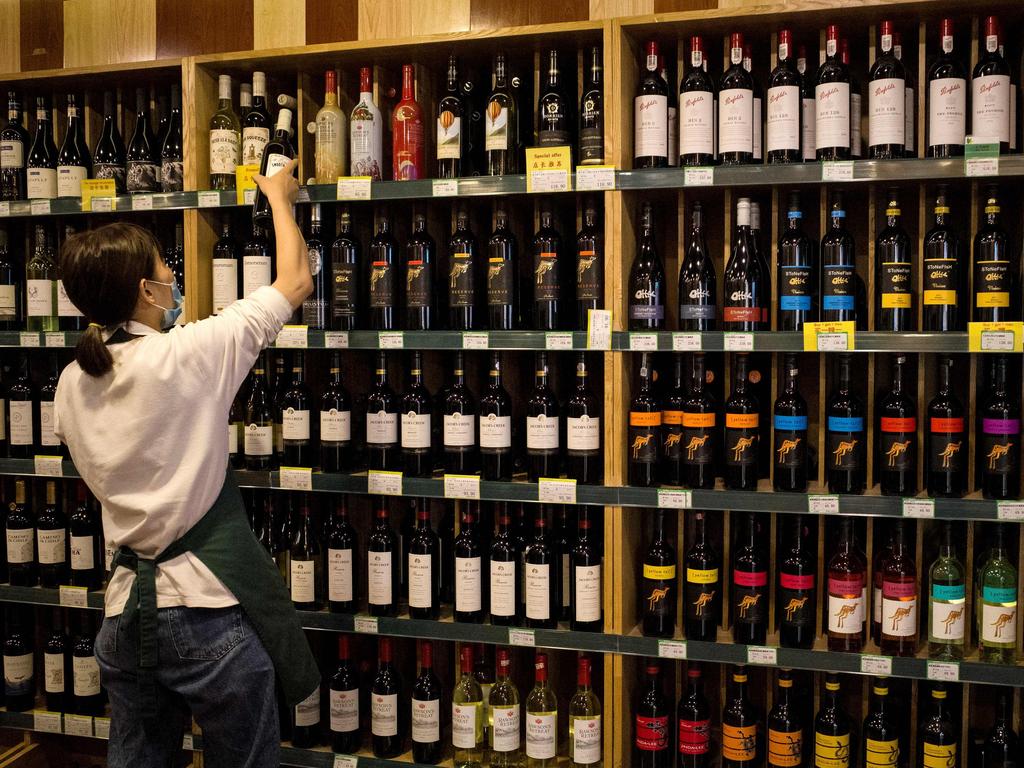



To join the conversation, please log in. Don't have an account? Register
Join the conversation, you are commenting as Logout